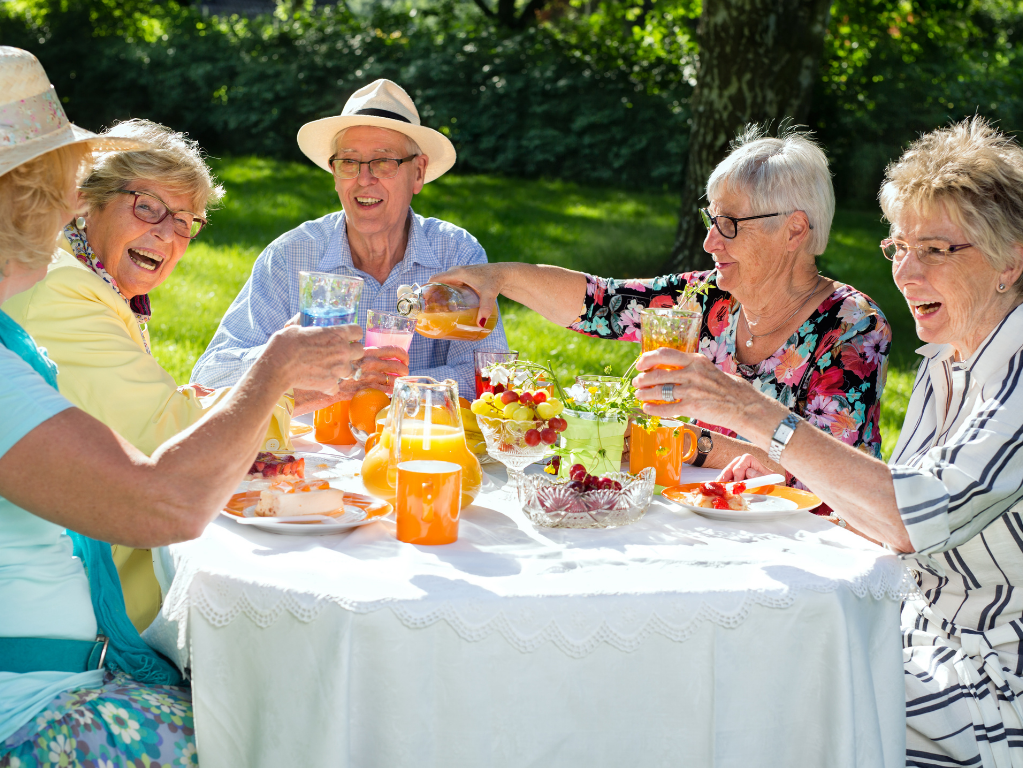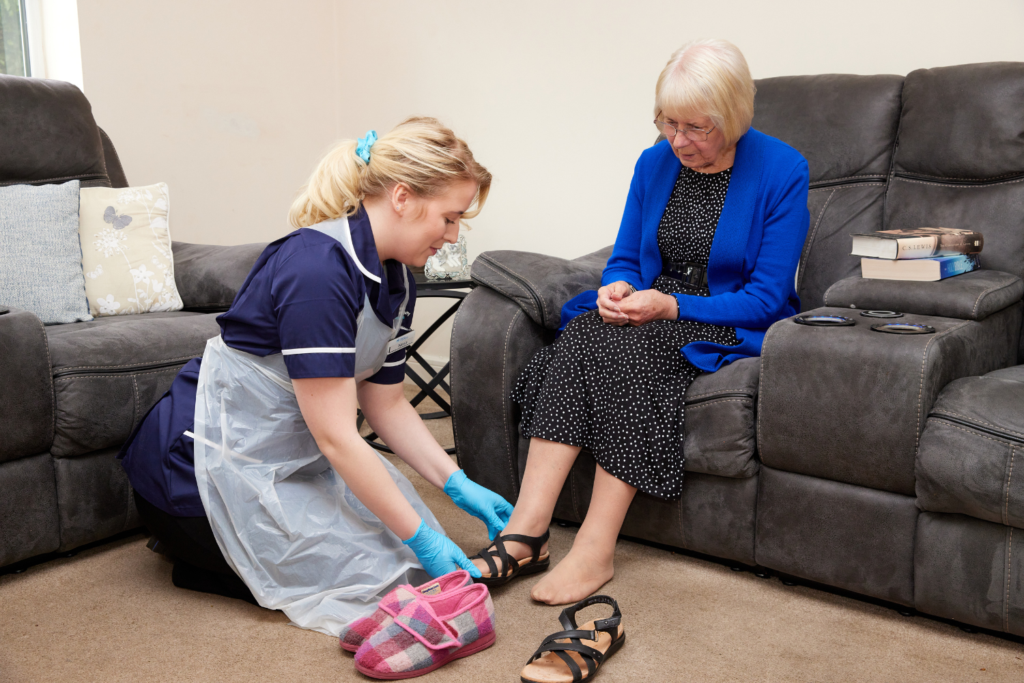With summer arriving and the longer days and sunnier skies already making their appearance, it’s time to start considering nutritional needs that will benefit you for the upcoming season. For elderly individuals, paying attention to nutrition during the summer months is particularly important, not just for staying healthy but for enjoying life to the fullest.
Whether you’re spending your afternoons in the garden, walking around your local park, or relaxing with a good book under a parasol, the food you eat plays a vital role in how you feel and function during summer.
Why Summer Nutrition Matters More as We Age
As we grow older, our bodies naturally undergo changes. Metabolism slows down, taste and appetite may decline, and our ability to regulate temperature becomes less efficient. These changes can increase the risk of dehydration, vitamin deficiencies, and even heat-related illnesses.
Summer weather can heighten these risks. High temperatures make us sweat more, which increases our need for hydration and certain nutrients like potassium and sodium. At the same time, hot weather can reduce appetite, making it harder to get the energy and nutrients your body needs.
Proper nutrition in the summer is key to keeping your energy levels stable, supporting your immune system, maintaining mental clarity, and preventing common health issues like heat exhaustion or digestive problems.
Hydration: More Than Just Drinking Water
One of the most crucial aspects of summer nutrition is staying hydrated. Older adults are more prone to dehydration because the body’s ability to sense thirst diminishes with age. Dehydration can lead to confusion, urinary tract infections, kidney problems, and even falls.
While drinking water regularly throughout the day is essential, hydration can also come from food. Fruits like watermelon, strawberries, oranges, and cucumbers are high in water content and make excellent, refreshing snacks. Soups, smoothies, and herbal teas also contribute to fluid intake while providing important nutrients.
A good rule of thumb: if you’re rarely thirsty or your urine is light in colour, you’re likely well-hydrated. But if you feel lightheaded, unusually tired, or have dark yellow urine, it may be time to top up on fluids.
To read more on Hydration in older adults visit the link to age UK’s page to read upon the signs of dehydration and the importance of drinking well. https://www.ageuk.org.uk/salfordandtrafford/about-us/improving-nutrition-and-hydration/drinking-well/
Nutrient-Rich Summer Foods for Vitality
The UK’s summer season brings a bounty of delicious, nutrient-rich produce that can be both affordable and easy to prepare. Think fresh peas, runner beans, tomatoes, carrots, berries, and new potatoes — all bursting with vitamins, minerals, and antioxidants.
Here are a few key nutrients to focus on and where to find them:
Vitamin C: Supports the immune system and helps absorb iron. Found in strawberries, oranges, peppers, and broccoli.
Calcium and Vitamin D: Help maintain strong bones and prevent fractures. Try yoghurt, sardines, leafy greens, and fortified cereals. Also, enjoy a bit of sun (safely!) to boost Vitamin D levels.
Fibre: Keeps the digestive system regular and supports heart health. Look for whole grains, beans, lentils, and seasonal fruits like raspberries and apples.
Potassium: Helps balance fluids and supports muscle function. Bananas, apricots, potatoes, and courgettes are great sources.
Easy Meal Ideas for Warm Days
When it’s hot outside, cooking big meals can feel like a chore. Thankfully, nutritious meals don’t need to be complicated. Here are a few ideas:
- A chilled pasta salad with cherry tomatoes, tuna, olives, and a light vinaigrette.
- A bowl of Greek yoghurt with berries, nuts, and a drizzle of honey.
- A simple vegetable omelette served with a slice of wholemeal toast.
- Grilled chicken or fish with steamed summer vegetables and new potatoes.
- Fresh fruit salad with a dollop of cream or custard for dessert.
Eating smaller, more frequent meals can help you stay energised without feeling overly full — especially on sweltering days.
Watch Out for Weight Changes and Appetite Loss
It’s normal for appetite to change with age and season, but sudden weight loss or lack of interest in food shouldn’t be ignored. It might be due to medications, dental issues, or underlying health concerns. If you’re noticing changes, it’s worth having a chat with your GP or a dietitian.
Consider joining local lunch clubs, community centres, or walking groups where meals are shared or enjoyed socially. Eating with others can make food more appealing and turn mealtimes into something to look forward to.
How we can help
If you think you or know someone that would benefit from having someone there to help support with nutritional needs and monitoring hydration, our care team are here to help. Our Gentle home help services are there to support with laundry to preparing meals. We can help with day- to- day domestic tasks and chores to keep your loved one living comfortably at home.
All our care packages are tailored specifically to the service users needs, if hydration and nutritional is one of these needs, we’re here to help with that.
You can also visit some of our previous blog articles:




